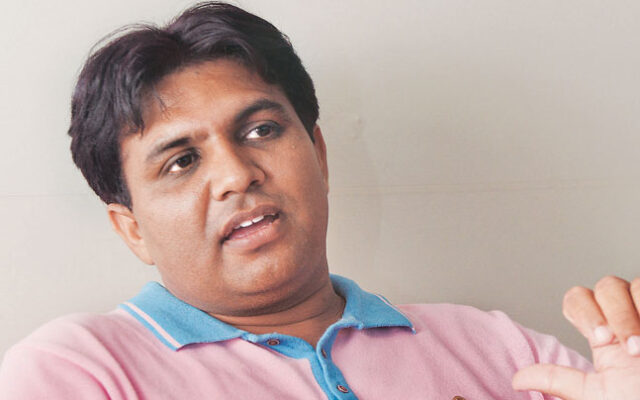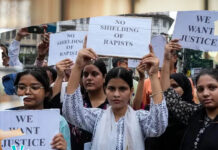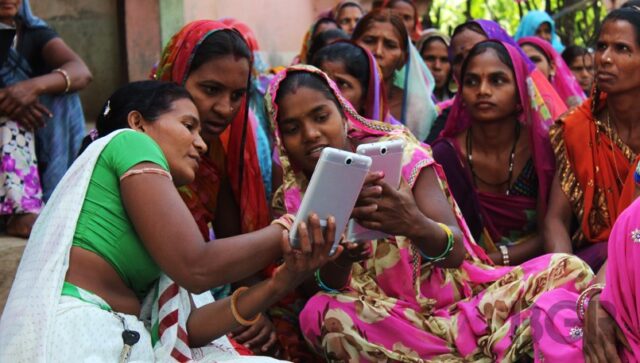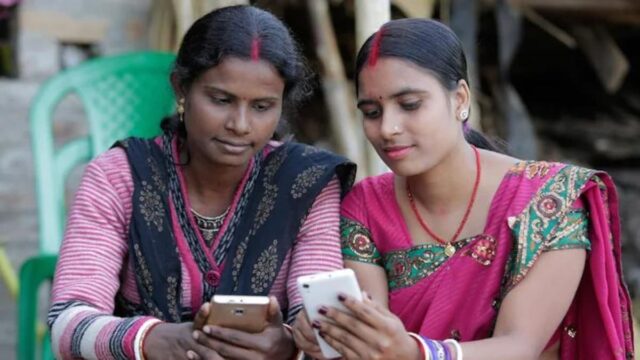Mewat, in Haryana, has always been a very conservative and backward region where women are looked down on even for having a mere social media account. The society there decides a woman’s character and questions her principles based on her activities on Twitter, Facebook, Instagram, and WhatsApp.
However, a campaign called “Laado Go Online” has highly motivated the women of Mewat to open their own social media handles and “go online.” These women are no longer afraid of being judged by others; instead, they are protesting against the baseless restrictions imposed on them.
Social Media Is Not For Mewat Women
Women with a smartphone in their hands are already regarded as a shame to society; if they happen to be on social media on top of that, it is next to sin. Neighbors, parents, and husbands strongly discourage women from being on social media and posting their photos.
It is ill-reputed for women to reveal themselves on social media, and young girls are warned that nobody will want to marry them if they use Facebook, Twitter, Instagram, or WhatsApp. And in Mewat, digital restraint is not only limited to Muslim women but all women.
A 23-year-old boy named Sohail, who is pursuing his bachelor’s degree from Delhi University and does a part-time job at a grocery store, claims that there is no need for women to be on social media platforms. He told the media, “I will not allow even my future wife to use social media. What is the need to reveal oneself? Our religion doesn’t allow it.”
The Campaign
The “Laado Go Online” campaign was initially started by Sunil Jaglan, the former sarpanch of a village called Bibipur in Haryana. The key objective of the campaign is to educate women about their rights and position, create social awareness of women’s digital liberty, and rectify public misconceptions.
Another campaign, called “Digital India With Laado,” was officially launched by Sunil Jaglan in 2015, with the initiative to add the names of daughters on the nameplates of all households in Jind, Haryana.
This campaign was introduced soon after Sunil’s previous campaign, “Beti Bachao Selfie Banao,” now called “Selfie with Daughter,” was a big hit among people and received special appreciation from the Prime Minister of India, Narendranath Modi.

In November 2022, Sunil Jaglan announced that women were needed to send in their photos, and among them, only one would be chosen to become the female brand ambassador of Mewat.
He was extremely delighted to see five women mail their photos to apply for the position of female brand ambassador of Mewat. Jaglan said, “It was an uphill task for these women but they fought to send a picture.”
Also Read: ResearchED: Sextortion Racket Run In Mewat, India’s Latest Cybercrime Hub
Revolting Women Of Mewat
A 26-six-year-old married woman named Shehnaz is almost hated by her neighbors because she is on social media and she posted a picture of herself in a white hijab. She is one of the five women who joined the “Laado Go Online” campaign.
In an interview, Shehnaz mentioned how her neighbors had a problem with her social media picture. She said, “In our society, we have to live according to other people’s and not our own wishes. My husband raised no objection over the picture but my neighbors raised the alarm and tried convincing him and my in-laws that it was wrong.”
Another woman named Astrun, who is training as a midwife at a government college in Nuh, shares that she too is treated with contempt by her neighbors for opening her own social media handle.
24-year-old Astrun questioned, “When men can use social media, why can’t women?” She also said, “I am the eldest child in the family. I don’t have an elder brother who would dictate my life. It was easy for me to convince my parents. But for my friends who have older brothers, social media is a far-fetched dream.”
Anjali is a 26-year-old housewife who could not be on social media until she got married. She was told by her parents and relatives that nobody wants to marry women with Facebook accounts.
Anjali claimed, “I was told no one would marry a woman who has a social media account and goes around revealing her pictures to other men.” She mentioned that even her husband didn’t want her to be on social media before their marriage.
She added, “But the day I got married, he allowed me to make a social media account. I was super happy. The first picture I uploaded was of our marriage. My husband says that now that we are married, I won’t go anywhere else so I can use social media freely.”
Let us know what you think of the situation in the comment section below.
Disclaimer: This article is fact-checked
Image Credits: Google Photos
Source: The Print, The Hindu & The Economic Times
Find The Blogger: @ekparna_p
This post is tagged under: Mewat, Nuh district, Nuh, Haryana, women, rights, patriarchy, male dominating, rural, uneducated, social media, Facebook, Twitter, Instagram, WhatsApp, digital platform, internet, smartphone, women on social media, taboo, restrictions, misconception, protests, campaign, Beti Bachao Selfie Banao, Laado Go Online, Digital India with Laado, fight back, feminism, women empowerment
Disclaimer: We do not hold any right, copyright over any of the images used, these have been taken from Google. In case of credits or removal, the owner may kindly mail us.
Other Recommendations:
The Disturbing Trend Of Buying Unmarried Girls (Even Children) In Full Bridal Wear In Haryana

































